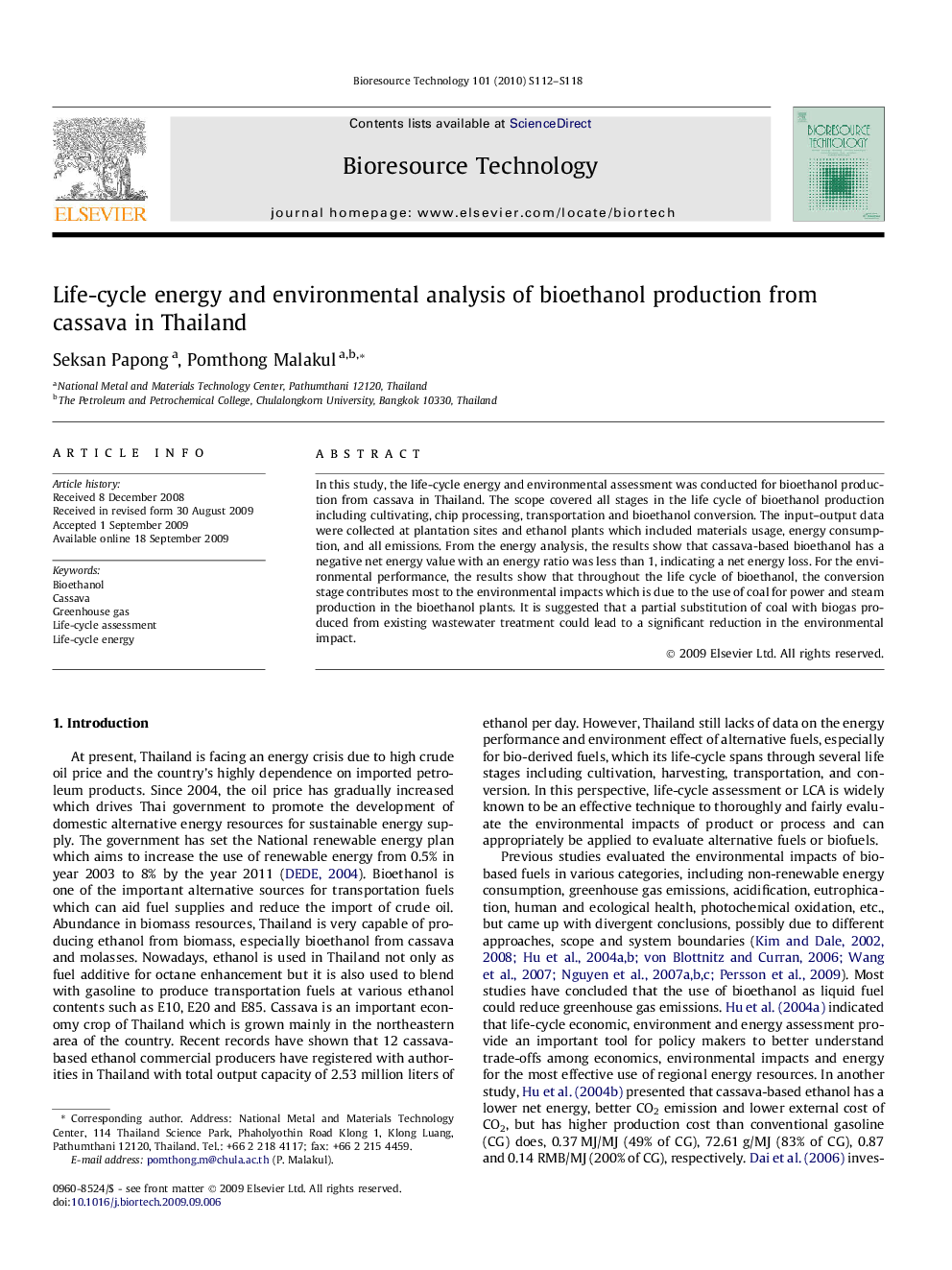| Article ID | Journal | Published Year | Pages | File Type |
|---|---|---|---|---|
| 683928 | Bioresource Technology | 2010 | 7 Pages |
In this study, the life-cycle energy and environmental assessment was conducted for bioethanol production from cassava in Thailand. The scope covered all stages in the life cycle of bioethanol production including cultivating, chip processing, transportation and bioethanol conversion. The input–output data were collected at plantation sites and ethanol plants which included materials usage, energy consumption, and all emissions. From the energy analysis, the results show that cassava-based bioethanol has a negative net energy value with an energy ratio was less than 1, indicating a net energy loss. For the environmental performance, the results show that throughout the life cycle of bioethanol, the conversion stage contributes most to the environmental impacts which is due to the use of coal for power and steam production in the bioethanol plants. It is suggested that a partial substitution of coal with biogas produced from existing wastewater treatment could lead to a significant reduction in the environmental impact.
